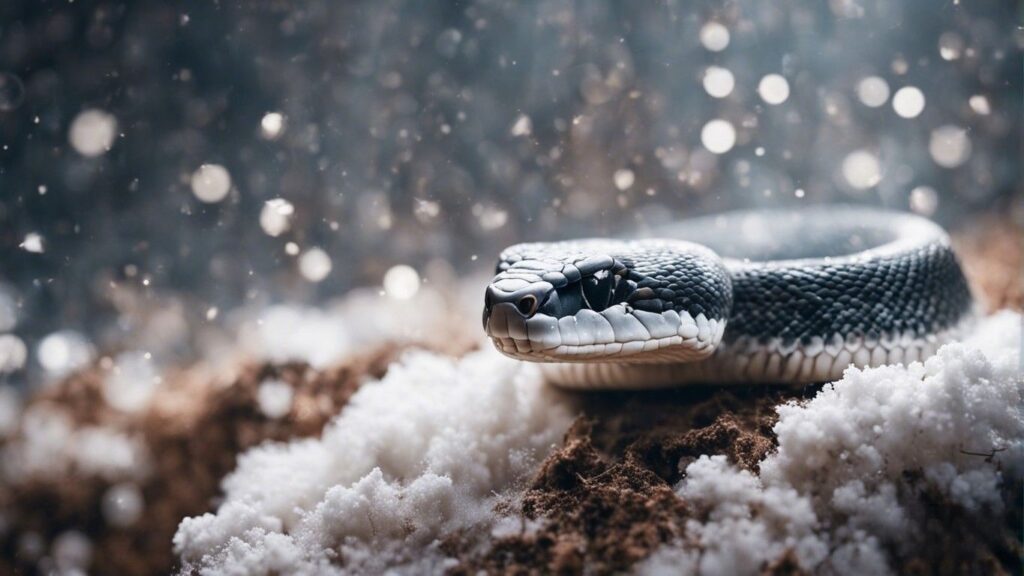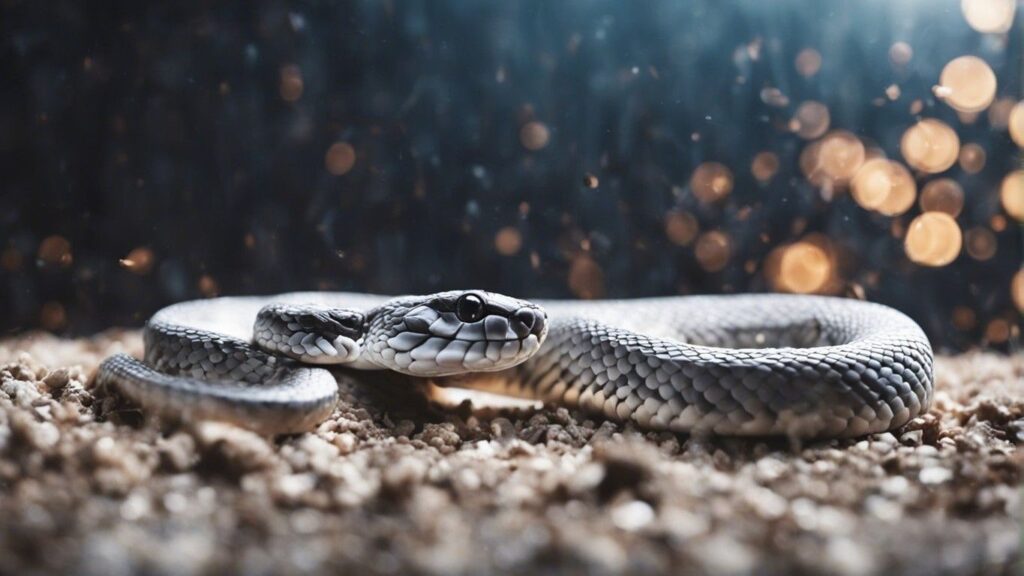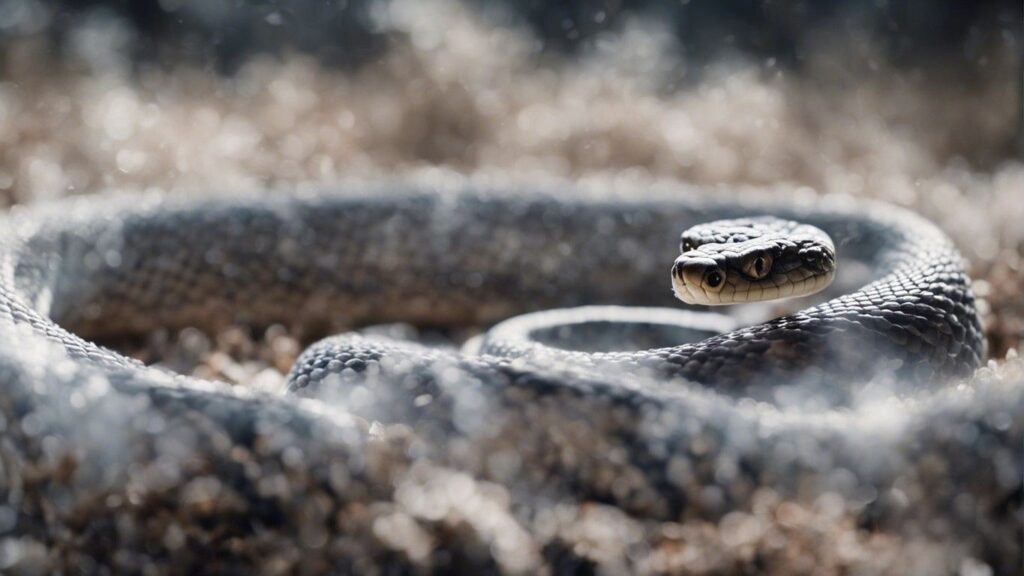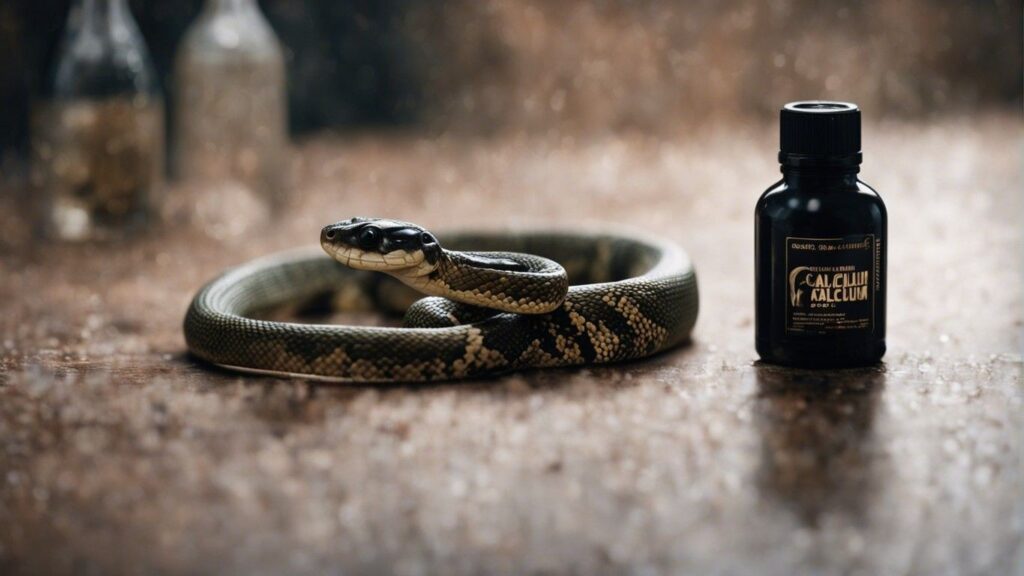So you’ve embarked on the thrilling journey of owning a snake but are unsure about their dietary needs.
One common question that arises is whether or not snakes require calcium powder as part of their diet.
In this article, we will explore the importance of calcium for snakes and how it contributes to their overall health.
Whether you’re a seasoned snake owner or considering becoming one, this information will surely come in handy when it comes to providing the best care for your scaly companion.
Benefits of Calcium Powder for Snakes
Promotes strong and healthy bones
One of the main benefits of calcium powder for snakes is its ability to promote strong and healthy bones.
Calcium is an essential mineral that is necessary for the development and maintenance of bones.
Snakes, like all reptiles, have a skeletal system that requires calcium to remain strong and to support their body structure.
By including calcium powder in their diet, you can ensure that your snake receives the necessary amount of calcium to maintain optimal bone health.
Prevents metabolic bone disease
Metabolic bone disease (MBD) is a common health issue that can affect snakes who are not receiving enough calcium in their diet.
MBD occurs when there is an imbalance in calcium and phosphorus levels in the body, leading to weak and brittle bones.
This condition can be debilitating for snakes and can even lead to deformities or fractures.
By supplementing your snake’s diet with calcium powder, you can help prevent the development of MBD and ensure their overall health and wellbeing.

Sources of Calcium for Snakes
Natural prey items
In the wild, snakes obtain calcium through their natural prey items. When snakes consume their prey, they also consume the bones, which are a rich source of calcium.
In captivity, it can be challenging to replicate the diversity of calcium-rich prey items that snakes would consume in the wild.
However, offering a variety of prey items, such as rodents, that have been gut-loaded with calcium-rich foods can help provide natural sources of calcium for your snake.
Supplements
Due to the difficulties in replicating the natural diet of wild snakes, it is often necessary to use calcium supplements to ensure that captive snakes receive adequate calcium.
Calcium carbonate powder is a commonly used supplement for snakes. It is typically sprinkled onto their food or dusted onto prey items before feeding.
This allows snakes to consume the necessary amount of calcium to meet their dietary requirements.
Signs of Calcium Deficiency in Snakes
Soft or deformed bones
A significant sign of calcium deficiency in snakes is the development of soft or deformed bones.
When snakes do not receive enough calcium, their bones may become weak and bendable, leading to deformities.
Soft bones can also make it difficult for snakes to move and support their body weight properly.
Difficulty shedding
Snakes that lack sufficient calcium in their diet may experience difficulty shedding their skin.
The shedding process requires energy and proper bone health to allow for the growth of a new layer of skin.
Calcium is essential for this process, and a deficiency can result in incomplete sheds or stuck shed, which can lead to various health issues.
Muscle tremors or spasms
Another potential sign of calcium deficiency in snakes is the presence of muscle tremors or spasms.
These tremors and spasms can occur when the muscles do not receive enough calcium to function properly.
Snakes may exhibit twitching or jerking movements, which can be a clear indication of a calcium imbalance.

How to Supplement Snakes with Calcium Powder
Choosing the right calcium powder
When it comes to choosing a calcium powder for your snake, it is essential to select a product specifically formulated for reptiles.
Avoid using calcium supplements designed for other animals or humans, as they may contain additional ingredients or levels of calcium that are not suitable for snakes.
Look for a reputable brand that provides pure calcium carbonate powder without any added fillers or additives.
Frequency and dosage
The frequency and dosage of calcium supplementation will depend on the species and age of your snake.
It is crucial to consult with a herpetologist or veterinarian who specializes in reptiles to determine the appropriate supplementation schedule for your specific snake.
In general, calcium powder should be provided a few times per week, particularly for young snakes and those that are actively growing.
Methods of administration
The most common method of administering calcium powder to snakes is through dusting or sprinkling it onto their prey items.
This ensures that the calcium powder adheres to the prey’s surface, allowing the snake to consume it during feeding.
Some snake owners may choose to offer calcium in the form of a slurry or gel, which can be mixed with other nutritional supplements or applied directly to the snake’s mouth.
Other Considerations for Snake Health
Balanced diet
In addition to calcium supplementation, it is crucial to provide your snake with a balanced and nutritious diet.
Different snake species have varying dietary requirements, so it is essential to research the specific needs of your snake.
A diet consisting of a variety of prey items, such as rodents, birds, or insects, will help ensure that your snake receives all the necessary nutrients, including calcium.
UVB lighting
UVB lighting plays a vital role in the overall health of reptiles, including snakes. UVB rays help reptiles synthesize vitamin D3, which aids in the absorption of calcium from their diet.
Exposure to natural sunlight or the use of UVB bulbs in their enclosure can help provide the necessary UVB rays for your snake to metabolize calcium properly.
Proper hydration
Hydration is essential for the overall health and wellbeing of snakes. Snakes obtain water primarily from their prey items, as well as through drinking or soaking.
Proper hydration is crucial for the absorption and utilization of calcium in their bodies. Ensure that your snake always has access to fresh, clean water, and consider providing opportunities for soaking or misting their enclosure to maintain proper hydration levels.

Potential Risks of Over-Supplementing with Calcium
Hypercalcemia
While calcium is essential for snakes, over-supplementing can lead to a condition called hypercalcemia.
Hypercalcemia occurs when there is an excessive amount of calcium in the bloodstream, which can have detrimental effects on the snake’s health.
Symptoms of hypercalcemia can include lethargy, loss of appetite, and issues with kidney function.
It is crucial to follow the recommended dosage and consult with a herpetologist or veterinarian to prevent this condition.
Kidney damage
Over-supplementing with calcium can also lead to kidney damage in snakes. High levels of calcium in the bloodstream can put strain on the kidneys, leading to the development of kidney stones or other renal issues.
Regularly monitoring calcium levels and consulting with a veterinary professional can help prevent kidney damage caused by excessive calcium supplementation.
Consultation with a Herpetologist or Veterinarian
To ensure the optimal health and wellbeing of your snake, it is recommended to consult with a herpetologist or veterinarian who specializes in reptiles.
These professionals can provide guidance on the appropriate calcium supplementation schedule, diet, and other considerations specific to your snake’s species and individual needs.
Regular check-ups can help monitor calcium levels and detect any potential health issues early on.
Final Thoughts
Calcium powder plays a crucial role in maintaining the health and wellbeing of snakes.
By promoting strong and healthy bones, preventing metabolic bone disease, and aiding in various bodily functions, calcium is an essential mineral for snakes.
While natural prey items can provide calcium, the use of calcium supplements is often necessary for captive snakes.
However, it is vital to carefully balance calcium supplementation to avoid over-supplementation, which can lead to health risks such as hypercalcemia and kidney damage.
By following recommended dosage and consulting with professionals, you can provide your snake with the necessary calcium and other considerations for a thriving, healthy reptile.




